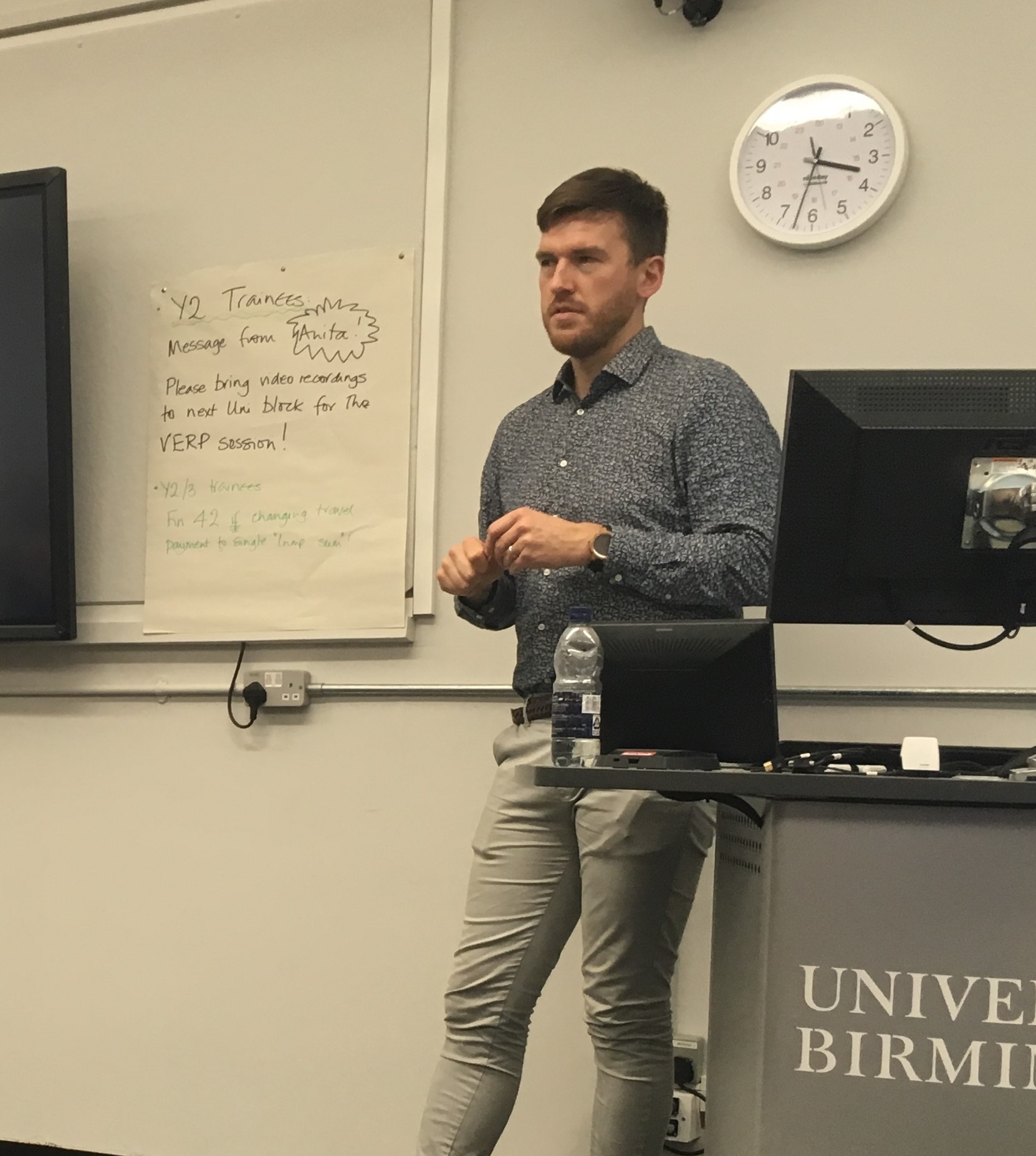By Sarah Prall
As part of the training course for educational psychologists at the University of Birmingham, we have two days every year when all three groups of trainees come together. These “3 cohort days” give us a chance to get to know one another across year groups and also to spend some time looking at a topic in-depth. This often involves drawing upon the expertise of speakers from across the University. This year on 9thNovember we were fortunate to have a number of speakers talking about “Supporting Mental Health and Responding to Mental Distress”.
Recently, the Government has set out its aims to tackle children and adolescents mental health difficulties in the Green Paper Transforming Children and Young People’s Mental Health Provision. It is estimated that one in ten young people fit the criteria for a diagnosis of a mental health condition. However, many children and young people find it difficult to access appropriate and timely support. This is due both to the increasing demand on support services and cuts to early intervention services. The study day aimed to consider how mental health is conceptualised and to help us to reflect on the role of educational psychologists in helping to address the current challenges in mental health.

Jerry Tew, Professor of Social Work and Social Care, who contributed to the report Investing in a Resilient Generation, started the day. Professor Tew gave a thought provoking presentation to challenge our perceptions of mental health, treatment and recovery. He provided examples of research that demonstrate the important influence of social factors, such as structural disadvantage, systemic devaluation, exclusion, misrecognition and ‘othering’, which can contribute to mental health difficulties. He highlighted the role society can play in treatment and recovery by ensuring that people have access to valued opportunities. Throughout the presentation, we were asked to consider: Is it time for a paradigm shift in how we conceptualise mental health? By the end, a strong case had been made to move away from simply looking at an individual, towards examining the environment and society in which they live.

Dr Maria Michail, a Senior Birmingham Fellow in Youth Mental Health, discussed a transdisciplinary approach to self-harm and suicide prevention. Dr Michail’s work aims to create transformational changes in the way we understand and respond to suicide prevention. This means moving towards a multi-agency approach that emphasises early intervention. She began by presenting her research that explores GP’s views and experiences of assessing, communicating with, and managing suicidal young people. Her research highlights the need to challenge current attitudes and beliefs towards suicide and suicidal young people and for a common understanding of suicide risk. Dr Michail’s research has contributed to the Mental Health Toolkit, Suicide in children and young people: Tips for GPs. Among reflections on the role of education psychologists in preventing suicide, our well-placed position to work with systems around children and young people was discussed. Also our ability to support conversations that challenge misconceptions of talking about suicide was considered.

Finally, our own Dr James Birchwood presented work conducted by Dr Lowri Griffiths, a recent PhD graduate. Dr Griffiths’s work focuses on cognitive predictors of functional outcomes in early psychosis. This included how we understand psychosis, highlighting both the role of biology and external factors. The presentation included an introduction to the Early Intervention Service model. This model, which is supported by a robust evidence base and is cost effective, does what it says on the tin. Using an assertive outreach approach, the Service provides up to three years of support for people who have experienced their first episode of psychosis. Finally, the presentation invited reflections on the notion of social recovery. While there is compelling evidence of the effect of early intervention on symptom reduction, a symptom-disability gap still exits. Echoing earlier themes in the day, a reduction of symptoms is not enough for recovery and people need to have opportunities and involvement in education, employment and independent living to close this gap.
Group reflections on the implications for educational psychologists rounded off the day. Themes that emerged were focused on prevention, early intervention and how social factors can support the treatment and recovery for individuals experiencing mental distress. We discussed the role of educational psychologists in helping this paradigm shift and acknowledged that we are well positioned to work with wider systems. Educational psychologists can also address negative attitudes and beliefs, support conversations, and disseminate research that continues to build the evidence base for preventative care and early intervention.
Sarah is a trainee in Year 3 of the training course for educational psychologists at the University of Birmingham.
If you enjoy our blog why not follow us and you will receive an email every time we post a new blog.

1 thought on “Mental Health Matters”